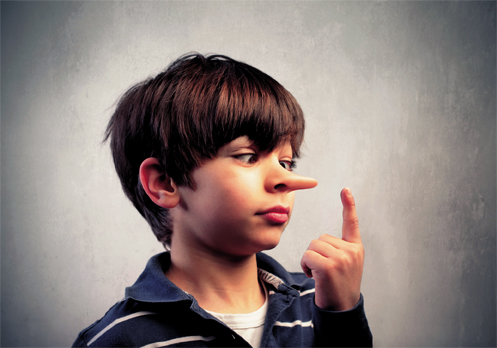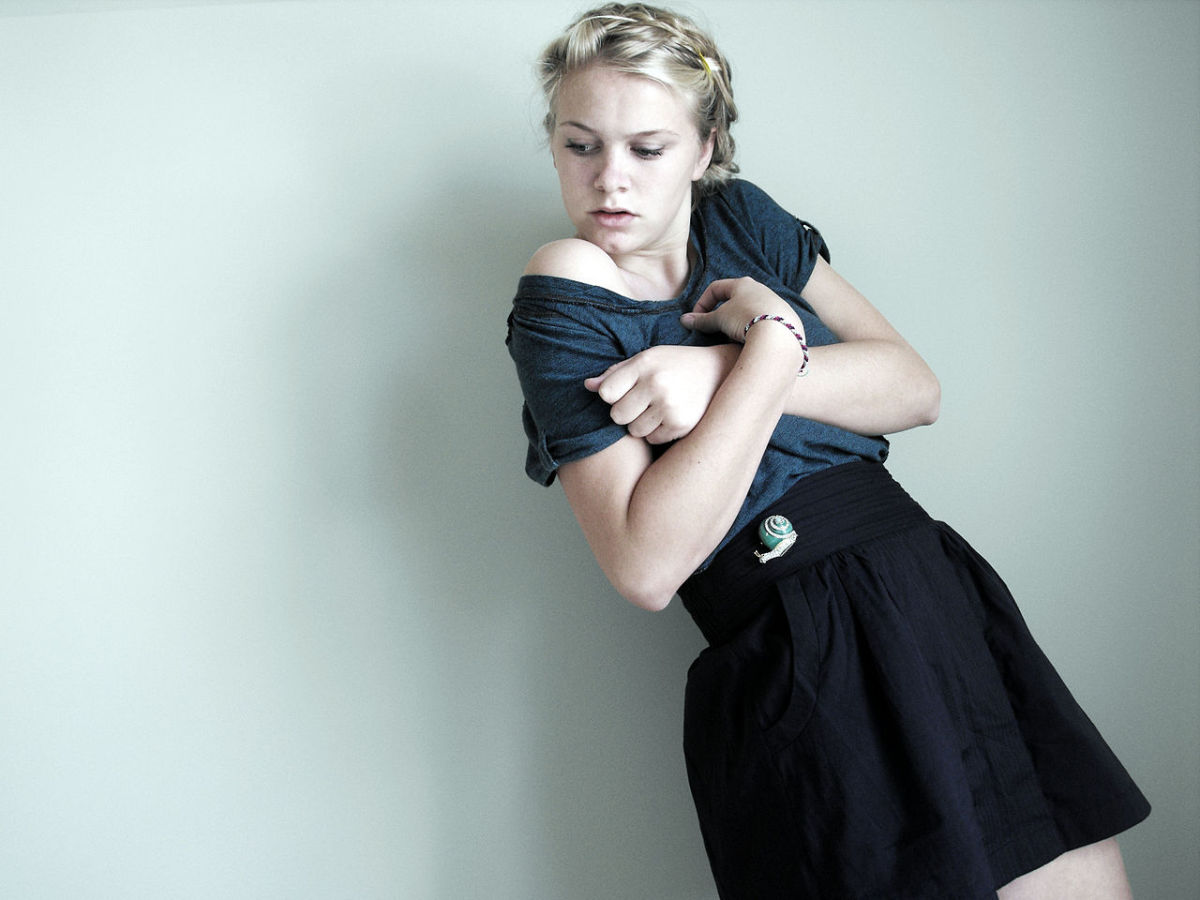How Can You Tell if a Person is Lying by his or her Body Language ?

Instant Lie Detector
When a person lies, his or her body language shows. Body gestures are a natural lie detector. Unless they are seasoned liars and are able to control their natural body gestures, you can guess or doubt someones’ honesty from the way they speak, move their hands, head, eyes or lips and interaction behaviour. Look out for these body gestures below to tell when someone is not speaking the truth. These are basic verbal cue or gestures that may indicate someone is being untruthful. They are not definite signs that someone is lying, but signs that they are more likely to be lying.

Body Gestures or Cues to Tell if Someone is Lying
Taking Long Pauses
Liars take long pauses or take longer time to response. If they are not merely nervous or thinking deeply over what you said, then he is lying. Their emotional or body response is off a normal pace. Their facial display is delayed, stays longer than it would naturally, or abruptly stop.
Eye Movement
If they are moving their eyes up and down, to the left or right, and not looking directly into your eyes, then, he is probably thinking a lie to tell you. A person making good eye contact with you is likely to tell you the truth.
Nervous Movement
When a person lies, they often display nervous body movements such as
- Rubbing the nose or behind their ears
- Twirling a pen
- Continuously clicks the top of a ballpoint pen
- Biting the nails
- Tapping the foot or rocking the leg
- Fiddling with dress, hair jewellery, watch or tie
- Repeatedly clearing the throat
- Touching face, throat or mouth
- Spoken Words may be mixed up or distorted; syntax and grammar may be off.
No Gestures, No emotion
On the contrary, seasoned liars are able to control their gestures or emotions. Lying can become a deliberate act, whether it has or has not been done after conscious consideration. Seasoned liars can show no emotion, their physical expression is limited or stiff, with very few arm or hand movements. However, when an act is deliberate, it will not hold for long. The good thing about honesty is that the innocents can be consistent with their answers and explanation. They don’t need to create more stories and remember their stories.
Mark Twain: 'If you tell the truth, you don't have to remember anything.',




How Can You Test a Person is Lying
An easy trick to test whether the person is lying : Change the subject of converstion. A liar will be relief to follow your conversation and appears more relaxed suddenly. The guilty liar wants the subject changed while an innocent person maybe confused or surprised by the sudden change in topics, and may want to go back to the previous topic.
Wisdom and Courage
Sometimes you must be strong enough to admit your limitations. Honest enough to say, I don't know. Have courage enough to admit when you are wrong. Have faith enough to hold on. Have wisdom enough to know when to let go.
Unusual Mouth Movement
A person who attempt to lie will sometimes show unusual movement such as mouth, lips and tongue. Tight lips may imply that a person is hiding the truth. Liars can get nervous over lying; their mouth can become dry, causing them to lick their lips.
Limited Facial Movement
When a person lies, they often fake emotions such as happy, awe, surprised, sad, and so on. Faked emotions are often limited to mouth movement instead of the entire face. When someone smiles naturally, their whole facial movement or all the facial muscles are involved.
Body Gestures do not match the verbal statement
When someone is lying, what they say does not match with their facial expression, or their facial expression is delayed. For example, someone says, “The food is delicious!” when tasting some food and then smile after making that statement. If he smiles at the same time the statement is made, he is likely to speak the truth.
Defensive or Avoidance Reaction
When a person lies and is feeling guilty over the matter, defensive or avoidance reaction is portrayed. They may feel uncomfortable and turn their head or body away from the person they are talking to. They may either try to get out of the conversation or make up stories to defend their lies. Sometimes, they may unconsciously place objects such as bags, books or cups between themselves and you.
Change Subjects or Making Indirect Reply
At times, liars will try to change subjects of conversation so as to avoid answering the questions directly. They may also imply answers instead of denying the statement directly. They want to avoid lying to the best they can, and avoid making direct statement which can get them into trouble.
Adding Unnecessary Details
To support their lies, the liars may add unnecessary details to convince you of the matter. They feel uncomfortable with silence or pauses in the conversation.
Copyright
The text and all images on this page, unless otherwise indicated, are owned by Ingenira who hereby asserts her copyright on the material. Permission must be granted by the author in writing prior to copy or republish this article in print or online. However, please feel free to copy the first paragraph with a link back to this page. Thank you.










